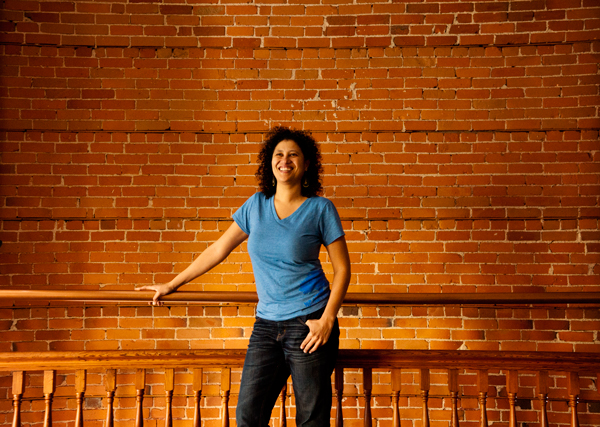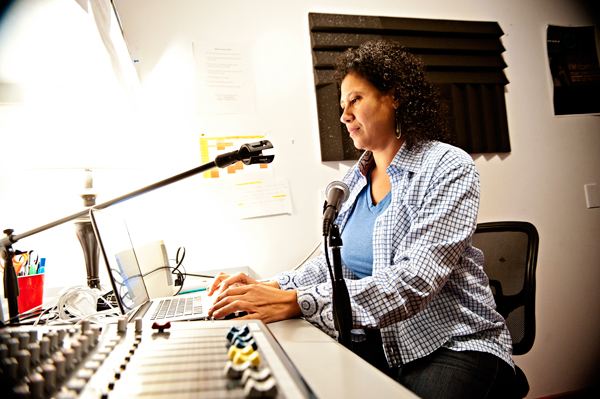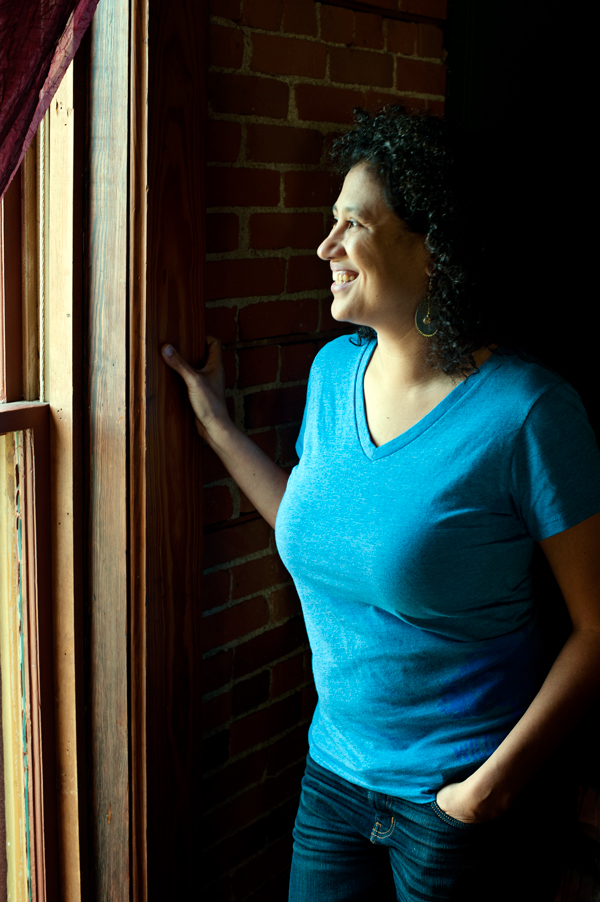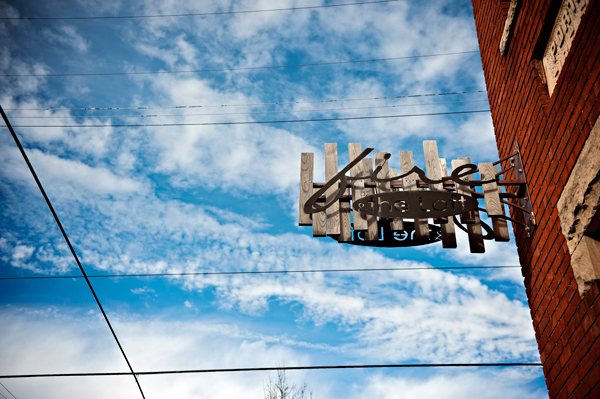Two consumed by fire set the community alight
It takes Fuel to feed Fire. Denise Miller and Michelle Johnson have worked out what's needed to keep the nonprofit Fire going. They talk to Zinta Aistars about what's at the heart of the many works they do across Kalamazoo.
Getting your Trinity Audio player ready...
Denise Miller and Michelle Johnson do far more than just nurture the arts in Kalamazoo. These two are on Fire. That’s, Fire Historical and Cultural Arts Collaborative, located in an old firehouse at 1249 Portage Road, with a reach that embraces the greater community and beyond, and beyond, and beyond.
Michelle Johnson is not kidding when, with a grin and a shrug, she says of their collaboration, “I’ve been known to do the laundry.” What Johnson and Miller do is a laundry list of good deeds and efforts, organizations branching off businesses, nonprofits paralleling profitable endeavors.
Fire is: art gallery, poetry showcase, Creative Justice Press, culinary arts program, catering service, WFCR radio, Youth Creative Productions. Spitfire Improv, Readers’ Theater, and Poet’s Society are coming soon. Their focus is on teens and emerging artists. They partner with a long list of area academia, businesses and nonprofits.
At the heart of all of these initiatives, however, is Fire. When Johnson and Miller met about a decade ago, a spark resulted. Today, the two are partners in business and in life. They co-founded Fire, and Johnson is executive director of Fire, while Miller is culinary arts coordinator and chef at the tangent business, a vegetarian restaurant called Fuel.
When the two met, Johnson lived in Ann Arbor, Miller in Kalamazoo. Eventually, Johnson would come to Kalamazoo, too, and at that point, the two started looking for a space to fill a void they found in the community.
“We saw a need for a coffee space, a place for creative ideas … we had a dream for a place where we could showcase poetry, visual art, good music, and at the same time welcome the LGBT community,” says Johnson.
“We started looking downtown for office space,” Miller adds. “But then we drove by the old firehouse on Portage Road and saw the lease sign. It was stunningly beautiful. We’re both drawn to old buildings.”
And that was that. Once they saw the old firehouse, their dream was … on Fire. As the 501 (c) 3 nonprofit called Fire emerged, the partners shaped it into what they call a “creative justice model.” Johnson explains: “It’s important that people identify their authentic voice–who they really are, and find their passion. Then, get the skills associated with that passion and get whatever equipment is needed to articulate those skills. That’s what we wanted to provide with Fire.”
Both women come from families of entrepreneurs. “Coming together,” Miller says, “brought out our business genes.”
“First you do what you have to do,” Johnson says. “Then you can do what you like to do. Fire is a working model, not something static, so we are always doing research on how to make it grow.”
While their focus is on youth, Fire incorporates diversity in generations, too. Out of 13 staff members, only one of which is full-time, the oldest employee is 89 years old. Interns and contractors come from Kalamazoo College, Western Michigan University, Kalamazoo Valley Community College (where Miller also teaches). At-risk youth are especially welcome.
“We are a training site for public administration, culinary arts and nonprofit leadership,” Johnson says.
“As we had more events, including family events, at Fire, people started asking about food,” Miller says. “The culinary program was our first program, our first curriculum. It took off very quickly.”
Fuel, Kalamazoo’s only strictly vegetarian restaurant and the profit arm of Fire, brought funds back to Fire, but at the same time, Fire developed culinary skills in youth, some of whom would end up working as paid employees at Fuel. One hand washes the other, and to strengthen that symbiotic relationship, proceeds on desserts at the vegetarian restaurant are set aside to support not only Fire, but also other nonprofits throughout Kalamazoo.
The catering branch of Fire, meanwhile, and the predecessor of the restaurant, is called Bites. Not all of the young people working in these areas are looking for a career in the kitchens of restaurants, and Miller and Johnson realized this.
“We want these young people to know how to do things for themselves,” Johnson says. “These are good skills to have. Anything you do well, that’s a transferable skill.”
“It’s not just about a paycheck,” Miller adds. “You should know you deserve to be paid for your work. The kids learn how to work with diverse people, how to work around social justice issues, how to communicate. It’s about a lot more than working in a kitchen.”
Some of that learning gained a sharp knife’s edge when Fire experienced budget cuts. Surviving in great part through grants, when grant money thinned, Johnson and Miller had to give their crew the bad news. Some would be let go.
“I cried. They cried,” says Johnson. “We sat around a table and talked–this is what it means to be dependent. And then we taught them grant writing so that they could find their own funding.”
That was a typical Fire response, every experience a learning experience, every step one step forward. Such experiences also fuel their efforts to help other nonprofits with their profits. Fire has since become self-sustaining, in great part due to the restaurant.
“The profit sector should help the nonprofit sector on a regular basis,” says Miller. “There are many ways to give, not just with chunks of money. We have to find ways to build community. It’s about reciprocity, a seamless process of continually helping. We must act with intentional integrity.”
Living their words, the two have also developed a radio station within Fire, called WFCR, airing community voices: middle school kids reading their poems, or the voices of different kinds of workers talking about their work, or people giving oral history, or testimony, as Miller calls it, about their life experiences.
“We want to give voice to people who don’t often have one,” Miller says, “because of socioeconomic factors, or race, or gender, or other limitations.”
Currently, they are collecting the oral testimony of adult survivors of child abuse. The project echoes another they did at Fire, called “Doors.” They organized a collection of doors, gathering donations or pulling old doors from dumpsters. Each door was decorated in a unique way, based on the question of “What door was closed to you?”
Apparently, to these two, few doors stay closed. Their only near-insurmountable challenge seems to be time management, enough time to realize all the good ideas and dreams that come to them. Giving voice to those who have none, feeding the hungry, teaching transferable skills, encouraging independence while emphasizing the need to consider community bonds, Miller and Johnson seem to go, go, go non-stop.
“We do try to keep one evening a week sacred,” Miller says.
“And then we usually end up asleep on the couch,” Johnson says with a laugh.
“What we’ve been to each other is roots and wings,” adds Miller. “Everything we’ve been doing with Fire, it’s an impossible dream. I never thought I’d be able to do all this, but as soon as we worked together–“
“–in small steps,” says Johnson, “it became a philosophy of ‘Yes, and … ?’ And then we just figure out how to do it.”
Zinta Aistars is creative director for Z Word, LLC, and editor of the literary magazine, The Smoking Poet. She lives on a farm in Hopkins.
Photos by Erik Holladay.




















